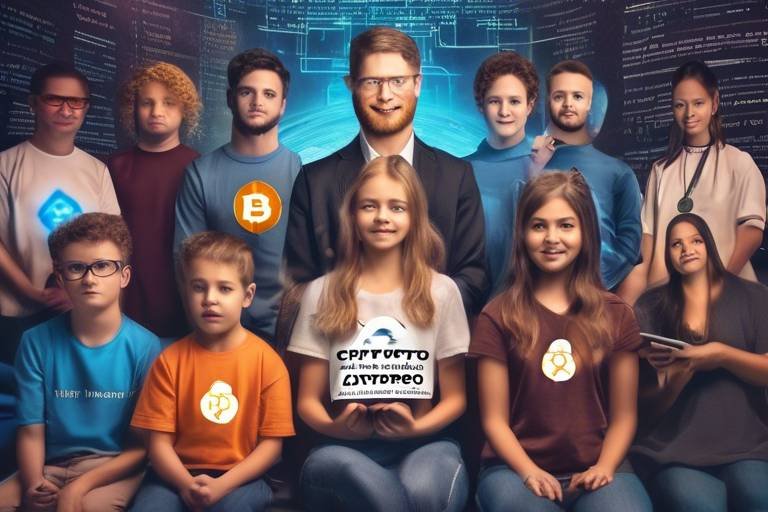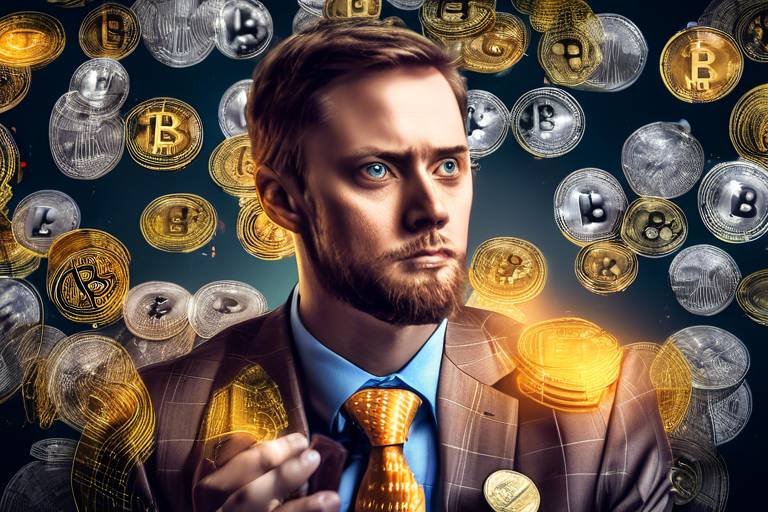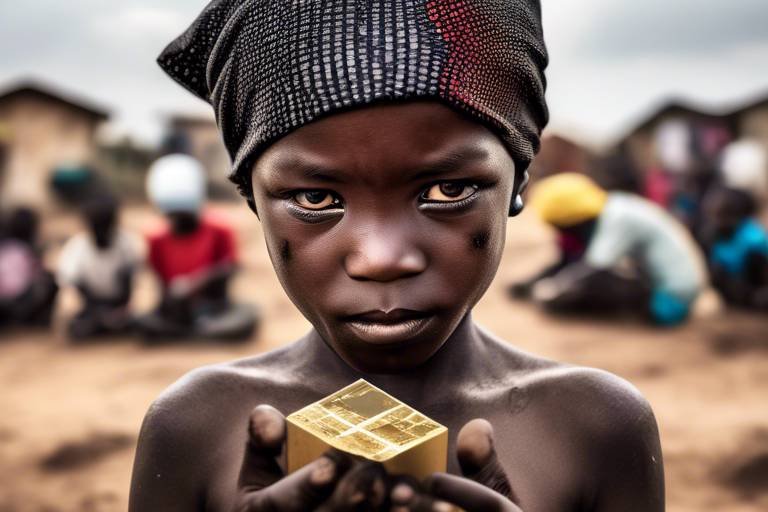How Blockchain Technology is Shaping the Future of Gaming
The gaming industry is on the brink of an unprecedented transformation, driven by the revolutionary potential of blockchain technology. This innovative technology is not just a buzzword; it’s a game-changer that is reshaping how we think about gaming. Imagine a world where players have complete control over their in-game assets, where cheating is virtually eliminated, and where the gaming experience is richer and more rewarding than ever before. This article dives into the myriad ways blockchain is impacting the gaming landscape, from decentralization to enhanced security measures and the exciting possibilities of non-fungible tokens (NFTs).
At the heart of blockchain lies the principle of decentralization, which is fundamentally altering the dynamics of the gaming ecosystem. Traditionally, gamers have been at the mercy of centralized servers and publishers, often leading to issues like unfair practices, lack of transparency, and monopolistic control. However, with blockchain, the power shifts back to the players. By enabling peer-to-peer interactions, blockchain eliminates intermediaries, creating a more equitable environment where gamers can interact directly with one another. This not only fosters a sense of community but also encourages innovation as developers are no longer restricted by the limitations imposed by traditional gaming companies.
One of the most exciting aspects of blockchain technology is its ability to provide players with true ownership of in-game assets through non-fungible tokens (NFTs). Imagine being able to buy, sell, and trade your unique in-game items securely across different platforms without the fear of losing them due to a server shutdown or a game going offline. NFTs allow players to have real, tangible value associated with their digital achievements. This shift not only empowers players but also opens up new avenues for monetization within the gaming industry.
With the introduction of NFTs, game economies are experiencing a seismic shift. These digital assets add a layer of scarcity and value to in-game items, which can lead to new revenue streams for both developers and players. For instance, a rare sword or a unique character skin can become a valuable commodity, traded among players for real money. This new economic model not only incentivizes players to engage more deeply with games but also provides developers with a sustainable way to generate income long after a game’s initial release.
Furthermore, the integration of NFTs allows developers to craft truly unique gaming experiences. By offering exclusive content tied to NFTs, developers can enhance player engagement and loyalty. Think of it as a VIP pass to a concert; owning an NFT could grant players access to special missions, rare items, or even unique storylines that are not available to the general public. This not only enriches the gaming experience but also fosters a deeper connection between players and the games they love.
However, the path to widespread NFT adoption in gaming is not without its challenges. Issues such as market volatility and environmental concerns related to blockchain technology must be addressed for NFTs to gain mainstream acceptance. The fluctuating value of NFTs can deter players from investing in them, while the environmental impact of certain blockchain networks raises ethical questions that the gaming community must confront.
Another fascinating aspect of blockchain technology is its ability to facilitate interoperability between different games. This means that players could potentially use their in-game assets across various titles, creating a seamless gaming experience. Imagine using your hard-earned sword from one game in another entirely different universe! This kind of interoperability not only enhances user experience but also expands the gaming universe, allowing for a richer and more interconnected gaming landscape.
Security is a major concern in gaming, with rampant issues of cheating and hacking. Blockchain's inherent security features provide a robust solution to these problems. By utilizing cryptographic techniques, blockchain ensures that players' data and assets are protected, fostering a fair gaming environment. This builds trust among players and developers alike, as everyone can have confidence in the integrity of the game.
Additionally, the implementation of smart contracts in gaming automates transactions and enforces rules within games. This reduces the need for third-party oversight, enhancing transparency in player interactions. Smart contracts can ensure that players receive their rewards instantly upon completing a task, making the gaming experience smoother and more enjoyable.
As technology continues to evolve, we can expect to see emerging trends such as play-to-earn models and decentralized autonomous organizations (DAOs) redefining the gaming landscape. These innovations promise to offer players new opportunities to earn while they play, further blurring the lines between gaming and real-world economies. The future of gaming is not just about entertainment; it’s about creating a participatory ecosystem where players are rewarded for their time and effort.
- What is blockchain technology? - Blockchain is a decentralized digital ledger that records transactions across many computers securely and transparently.
- How do NFTs work in gaming? - NFTs are unique digital assets that players can own, trade, and sell, giving them true ownership of in-game items.
- What are the benefits of decentralization in gaming? - Decentralization removes intermediaries, fosters community, and empowers players, leading to a more equitable gaming environment.
- What challenges does blockchain gaming face? - Challenges include market volatility of NFTs and environmental concerns related to blockchain technology.

Decentralization in Gaming
Decentralization is a core principle of blockchain technology, and it’s a game changer for the gaming industry. Imagine a world where you, as a gamer, can interact directly with other players without needing a middleman like a game publisher or server. Sounds revolutionary, right? Well, that’s exactly what blockchain is bringing to the table. By removing these intermediaries, blockchain enables a peer-to-peer gaming ecosystem that empowers players in unprecedented ways.
In traditional gaming, players often find themselves at the mercy of centralized entities. These companies control everything from game updates to the distribution of in-game assets. This centralization can lead to issues like unfair practices, server downtime, and even the dreaded “pay-to-win” model. With blockchain, however, the power shifts back to the players. This decentralized approach fosters a more equitable environment, where gamers can truly own their experiences and assets. Think of it like a community garden where everyone contributes and shares, rather than a single company controlling the entire park.
One of the most exciting aspects of decentralization is the ability to create and participate in decentralized applications (dApps). These dApps run on the blockchain and can host games that are governed by smart contracts, ensuring fairness and transparency. Players can engage in a variety of activities, from trading in-game items to participating in governance decisions, all without the fear of manipulation. It’s like being part of a democratic society where your voice matters, and every player has a stake in the game.
Moreover, decentralization encourages innovation. Developers are no longer bound by the constraints of traditional gaming models. They can experiment with new ideas and concepts, leading to a diverse range of gaming experiences. This innovation is not just beneficial for developers; it also enhances the overall gaming experience for players. You can think of it as a vibrant marketplace where creativity thrives, and players can enjoy a multitude of unique games that cater to their interests.
However, it’s essential to recognize that decentralization also comes with its own set of challenges. The transition from centralized to decentralized systems can be complex, and not all players are familiar with blockchain technology. Education and awareness are crucial for ensuring that gamers can navigate this new landscape effectively. Additionally, while decentralization promotes fairness, it also requires robust security measures to protect against malicious actors. Just like in any community, there will always be a few bad apples, and safeguarding the ecosystem is vital for its success.
In summary, decentralization in gaming is not just a buzzword; it’s a transformative force that is reshaping how we interact with games and each other. By empowering players, fostering innovation, and ensuring fair play, blockchain technology is paving the way for a more inclusive and exciting gaming future. Are you ready to embrace this new era of gaming?
- What is decentralization in gaming? Decentralization in gaming refers to the removal of intermediaries, allowing players to interact directly with each other and own their in-game assets.
- How does blockchain technology empower gamers? Blockchain empowers gamers by providing true ownership of assets, enabling peer-to-peer transactions, and fostering a fair gaming environment.
- What challenges does decentralization face? Challenges include the complexity of transitioning to decentralized systems, the need for player education, and ensuring robust security against malicious activities.
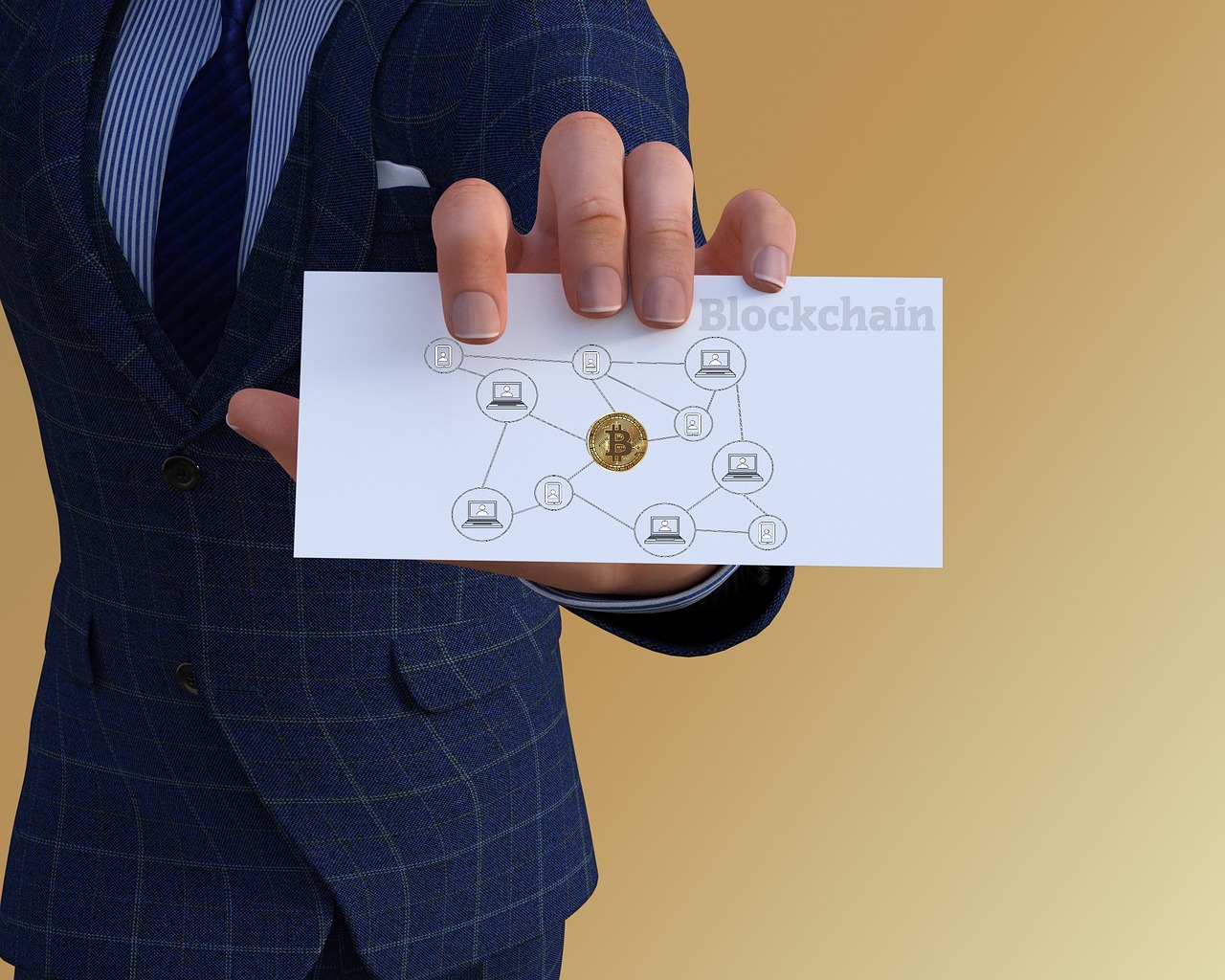
Ownership of In-Game Assets
In the rapidly evolving world of gaming, the concept of ownership is undergoing a revolutionary transformation, thanks to blockchain technology. Traditionally, players have invested countless hours and resources into games, only to find that their hard-earned assets are often locked within the confines of the game itself, with no real value outside of that digital realm. However, with the advent of non-fungible tokens (NFTs), players can now enjoy true ownership of their in-game assets. This means that items like skins, weapons, and even characters can be bought, sold, and traded securely across different platforms, much like physical collectibles in the real world. Imagine owning a rare sword in a fantasy game that you can sell or trade with others, or even carry over to a different game entirely!
Furthermore, this shift towards ownership brings a new level of empowerment to players. Instead of being mere consumers of digital content, gamers become stakeholders in the gaming ecosystem. They can participate in the game's economy, making decisions that affect its future. This is akin to being part of a community where your contributions and investments are recognized and rewarded. The ability to trade assets on secondary markets not only creates a sense of value but also fosters a more vibrant and engaged community of players.
However, the rise of NFTs and ownership in gaming is not without its challenges. Market volatility can make the value of in-game assets fluctuate dramatically, leading to uncertainty for both players and developers. Additionally, there are environmental concerns associated with blockchain technology, particularly regarding energy consumption. Developers must navigate these challenges carefully to ensure that the benefits of ownership do not come at an unsustainable cost.
In essence, the ownership of in-game assets through blockchain technology is a game-changer. It not only enhances the gaming experience by providing players with real value for their time and effort but also opens up new avenues for developers to monetize their creations. As this trend continues to evolve, we can expect to see even more innovative ways that ownership is integrated into the gaming landscape.
- What are NFTs in gaming? NFTs are unique digital tokens that represent ownership of specific in-game assets, allowing players to buy, sell, and trade these items securely.
- How does blockchain ensure the security of in-game assets? Blockchain technology provides a decentralized ledger that records all transactions, making it nearly impossible to cheat or hack, thus ensuring a fair gaming environment.
- Can I use my NFTs in multiple games? Yes, blockchain technology facilitates interoperability, allowing players to use their assets across different games, enhancing user experience.
- What are the environmental concerns related to NFTs? The energy consumption associated with blockchain transactions can be significant, raising concerns about the environmental impact of minting and trading NFTs.
- How can developers benefit from NFTs? By integrating NFTs into their games, developers can create new revenue streams through the sale of unique assets and foster a more engaged community of players.

Impact of NFTs on Game Economies
The introduction of non-fungible tokens (NFTs) into the gaming industry is nothing short of revolutionary. Imagine a digital world where the items you earn, trade, or purchase are truly yours, not just fleeting memories in a game. NFTs create a paradigm shift in how we perceive value in gaming. They introduce an element of scarcity and ownership that was previously absent. In traditional gaming, players often invest countless hours and money into acquiring in-game assets, only to realize that they have no real ownership over them. With NFTs, every sword, skin, or collectible can be uniquely owned, bought, and sold on various platforms, creating a vibrant marketplace.
But what does this mean for game economies? Well, it opens up a myriad of possibilities. Developers can design games that incorporate a robust economic model based on these digital assets. For instance, players can trade their NFTs in exchange for cryptocurrency or other in-game currencies, creating a real-world value tied to their digital achievements. This not only enhances player engagement but also incentivizes developers to create high-quality content that players will want to invest in.
Moreover, the introduction of NFTs fosters a sense of community among players. When gamers can trade their unique items, they are more likely to interact, collaborate, and compete with one another. This sense of ownership and community can lead to a more dynamic and engaging gaming experience. Players are no longer just consumers; they become active participants in a thriving economy.
However, the impact of NFTs on game economies isn't all sunshine and rainbows. There are challenges to consider, such as market volatility and the potential for speculation. Prices for NFTs can fluctuate wildly, which may deter some players from investing in them. Additionally, developers need to find a balance between creating valuable assets and ensuring that their game remains accessible to all players, regardless of their financial investment.
To illustrate the potential economic impact of NFTs, consider the following table:
| Aspect | Traditional Gaming | NFT Gaming |
|---|---|---|
| Ownership | No real ownership | True ownership through NFTs |
| Value | Non-transferable | Market-driven value |
| Community Engagement | Limited interaction | Active trading and collaboration |
| Revenue Streams | Subscription and one-time purchases | Trading, royalties, and in-game transactions |
In conclusion, NFTs are not just a trendy buzzword; they are reshaping the very fabric of game economies. By enabling true ownership and creating new avenues for engagement and revenue, NFTs are paving the way for a more sustainable and interactive gaming future. As developers continue to explore the potential of these digital assets, we can expect to see a gaming landscape that is richer, more diverse, and ultimately more rewarding for players.
- What are NFTs? NFTs are unique digital assets that represent ownership of a specific item or piece of content on the blockchain.
- How do NFTs impact gaming? NFTs allow players to truly own their in-game assets, trade them, and create real-world value, transforming game economies.
- Are NFTs safe to use in gaming? While blockchain technology offers enhanced security, players should always exercise caution and conduct research before investing in NFTs.
- What are some challenges of NFTs in gaming? Market volatility and environmental concerns are significant challenges that need to be addressed for widespread NFT adoption in gaming.
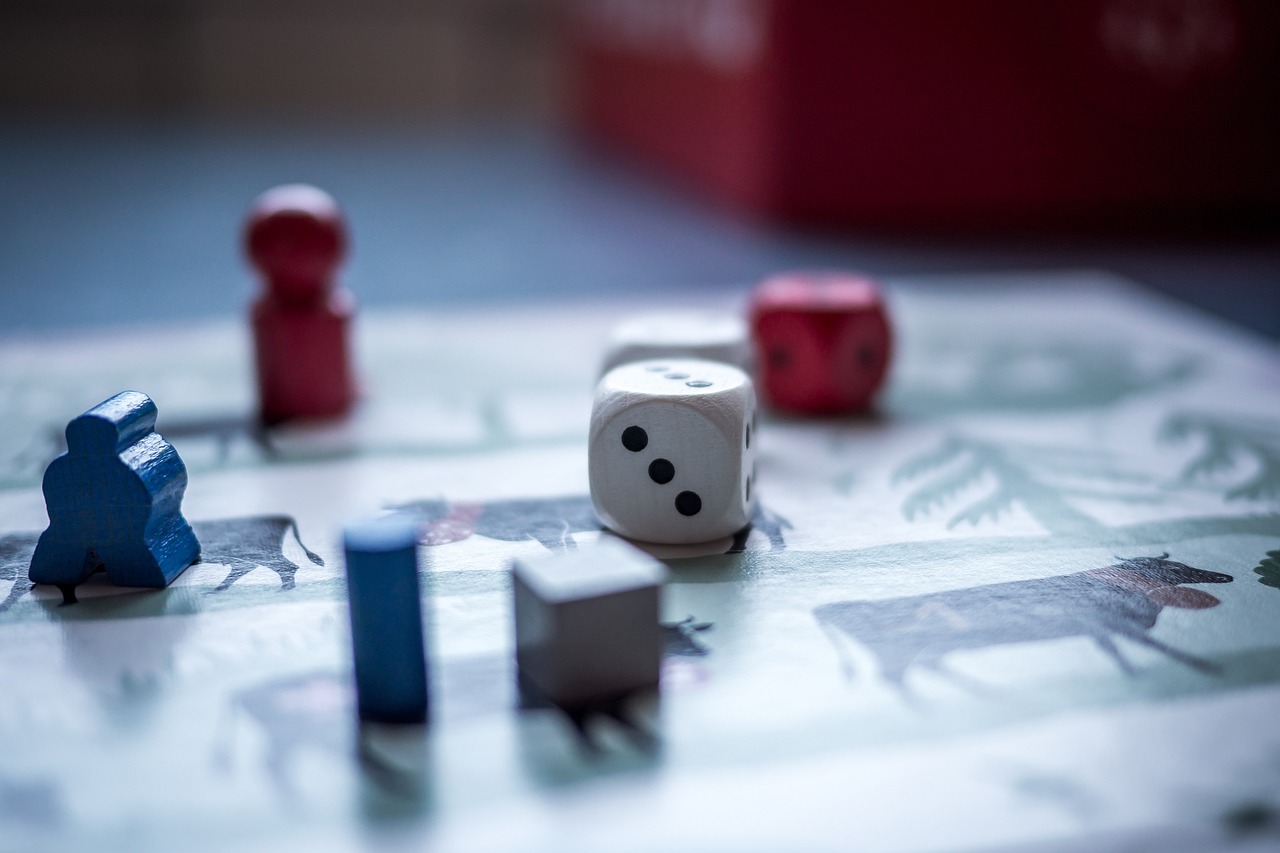
Creating Unique Game Experiences
Imagine stepping into a virtual world where every item you own is not just a pixelated image but a unique piece of digital art that belongs solely to you. This is the magic of blockchain technology in gaming, particularly through the use of non-fungible tokens (NFTs). With NFTs, developers can craft exclusive game experiences that allow players to truly own their in-game assets. No longer are players mere consumers; they become part of a vibrant ecosystem where their contributions and investments carry real weight.
One of the most exciting aspects of NFTs is their ability to create a sense of rarity and value in digital items. For instance, consider a game where players can acquire special weapons or skins that are limited in number. These items can be traded or sold, giving players a tangible stake in the game’s economy. This not only enhances engagement but also fosters a community of players who are passionate about their unique collections. Players might even find themselves participating in an active marketplace, where the thrill of trading becomes just as exhilarating as gameplay itself.
Moreover, developers can leverage this technology to introduce dynamic content that evolves based on player interactions. Imagine a game where the storyline changes based on the decisions you make, and the items you collect can influence the narrative. This level of interactivity can lead to a more personalized gaming experience, making players feel more connected to the game world. It’s like being the hero of your own story, where your choices matter and your assets reflect your journey.
However, creating these unique experiences isn't just about the technology; it's also about storytelling and creativity. Developers have the opportunity to craft rich lore around their NFTs, turning them into coveted artifacts with backstories that players can relate to. For example, a rare sword might have a history tied to an ancient hero, making it more than just a weapon; it becomes a piece of the game’s narrative tapestry. This blend of storytelling and ownership can lead to a deeper emotional connection between players and their virtual possessions.
In conclusion, the incorporation of NFTs in gaming is not merely a trend; it's a paradigm shift that allows for the creation of unique game experiences that are immersive, engaging, and rewarding. As developers continue to explore the possibilities of blockchain technology, we can expect a future where every player has the chance to be a part of something truly special. The potential for unique experiences is limitless, and as players, we are at the forefront of this exciting evolution.
- What are NFTs in gaming? NFTs, or non-fungible tokens, are unique digital assets that represent ownership of a specific item in a game, allowing players to buy, sell, and trade them.
- How do NFTs enhance gameplay? NFTs introduce scarcity and value to in-game items, creating a more engaging and rewarding experience for players.
- Are there any challenges to using NFTs in gaming? Yes, challenges include market volatility and environmental concerns related to blockchain technology.

Challenges of NFT Adoption
The world of NFTs in gaming is like a thrilling roller coaster ride—full of ups and downs, twists and turns. While the potential for non-fungible tokens to revolutionize how we interact with digital assets is immense, there are several significant challenges that stand in the way of widespread adoption. First and foremost, there's the issue of market volatility. Just like the stock market, the value of NFTs can fluctuate wildly, leaving players and developers alike in a state of uncertainty. One day, a digital sword might be worth thousands, and the next, it could plummet to a fraction of that value. This unpredictability can deter players from investing in NFTs, fearing they may lose money rather than gain it.
Another hurdle is the concern over environmental impact. The blockchain technology that powers NFTs often requires substantial energy consumption, which raises eyebrows among environmentally conscious gamers. Many are questioning whether indulging in NFT gaming is worth the carbon footprint it leaves behind. This concern has led to a growing demand for more sustainable blockchain solutions, but until those solutions become mainstream, the environmental impact remains a significant barrier to adoption.
Additionally, there's the learning curve associated with NFTs and blockchain technology. For many gamers, the concept of digital ownership and the intricacies of blockchain can feel overwhelming. Imagine trying to explain the rules of a complex board game to someone who has never played before; that's how it feels for newcomers to the NFT space. Developers need to create user-friendly interfaces and educational resources that demystify the process, making it easier for everyone to join the fun.
Lastly, there is the issue of regulatory scrutiny. As NFTs gain popularity, governments and regulatory bodies are starting to take notice. The legal landscape surrounding digital assets is still evolving, and the uncertainty surrounding regulations can create apprehension for both players and developers. It’s akin to walking through a foggy path—without clear visibility, it’s hard to know what lies ahead. As regulations become clearer, it may pave the way for a more secure and stable environment for NFT transactions.
In summary, while NFTs hold incredible promise for the gaming industry, the challenges of market volatility, environmental concerns, learning curves, and regulatory scrutiny must be addressed. Overcoming these obstacles will be crucial for the mainstream acceptance of NFTs in gaming, allowing players to fully embrace the future of digital ownership.
- What are NFTs? NFTs, or non-fungible tokens, are unique digital assets verified using blockchain technology, allowing for true ownership of digital items.
- How do NFTs impact gaming? NFTs enable players to buy, sell, and trade in-game assets securely, creating new economic opportunities and enhancing player engagement.
- What are the environmental concerns with NFTs? The energy consumption required for blockchain transactions can have a significant environmental impact, raising concerns among eco-conscious gamers.
- Are NFTs safe to invest in? Like any investment, NFTs come with risks, including market volatility and potential regulatory issues, so it's essential to do thorough research.
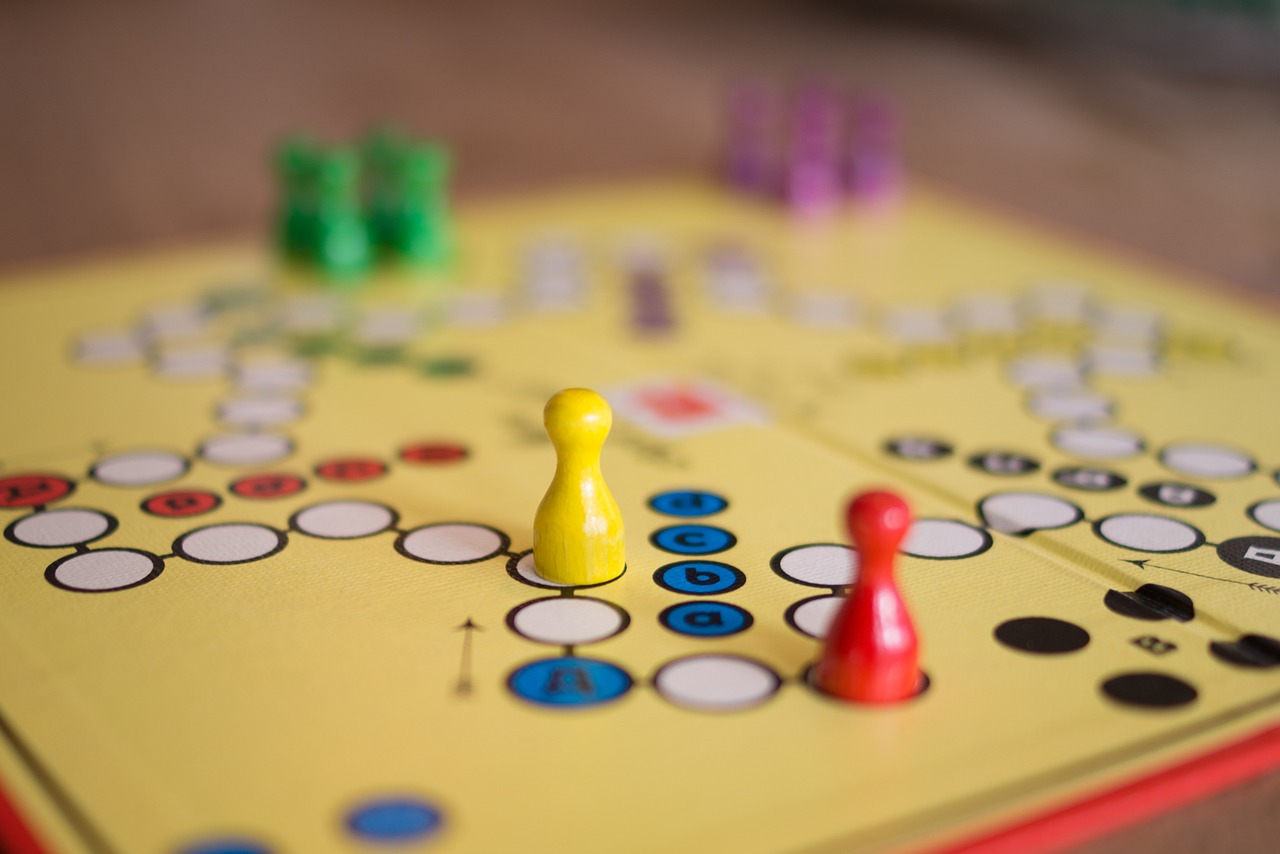
Interoperability Between Games
When we think about the future of gaming, one of the most exciting prospects is the concept of interoperability. Imagine a world where your favorite character from one game can seamlessly jump into another universe, carrying with them all their unique gear and skills. This isn’t just a fantasy; it’s a reality that blockchain technology is paving the way for. Interoperability means that players can use their in-game assets across different games, creating a vast and interconnected gaming ecosystem. This not only enhances the user experience but also expands the gaming universe in a way that was previously unimaginable.
At its core, interoperability is about breaking down the silos that exist in traditional gaming. In the past, if you invested time and money into a character or an item, it was often locked within a single game. You couldn’t transfer that hard-earned sword from one RPG to another. But with blockchain, assets are tokenized as non-fungible tokens (NFTs), which can be recognized and utilized across multiple platforms. This opens up new avenues for creativity and collaboration among developers, as they can design games that interact with each other, enriching the overall gaming experience.
The benefits of interoperability extend beyond just player enjoyment. Developers can also tap into new revenue streams by creating ecosystems where assets can be traded and utilized in various games. For instance, a unique skin or weapon from one game could become a sought-after item in another, leading to a thriving secondary market. This creates a winner-takes-all scenario where both players and developers benefit from the increased demand for versatile assets.
However, achieving true interoperability is not without its challenges. Developers need to agree on standards and protocols that allow for the smooth transfer of assets. This requires collaboration and a shared vision, which can be difficult in a competitive industry. Additionally, there are technical hurdles to overcome, such as ensuring that assets retain their value and functionality when moved between different games. Despite these challenges, the potential rewards make it a pursuit worth undertaking.
In summary, interoperability between games represents a significant leap forward in the gaming industry. It empowers players, enhances their experiences, and creates a dynamic environment where creativity can flourish. As blockchain technology continues to evolve, we can expect to see more games embracing this concept, leading to a truly interconnected gaming world. The future is bright, and the possibilities are endless!
- What is interoperability in gaming?
Interoperability in gaming refers to the ability to use in-game assets across different games, allowing for a more connected and expansive gaming experience. - How does blockchain enable interoperability?
Blockchain enables interoperability by tokenizing in-game assets as non-fungible tokens (NFTs), which can be recognized and utilized across various platforms. - What are the benefits of interoperability for players?
Players benefit from increased freedom to use their assets in multiple games, enhanced gaming experiences, and the potential for greater investment in their gaming assets. - What challenges do developers face in achieving interoperability?
Developers face challenges such as establishing common standards, technical hurdles, and the need for collaboration in a competitive industry.
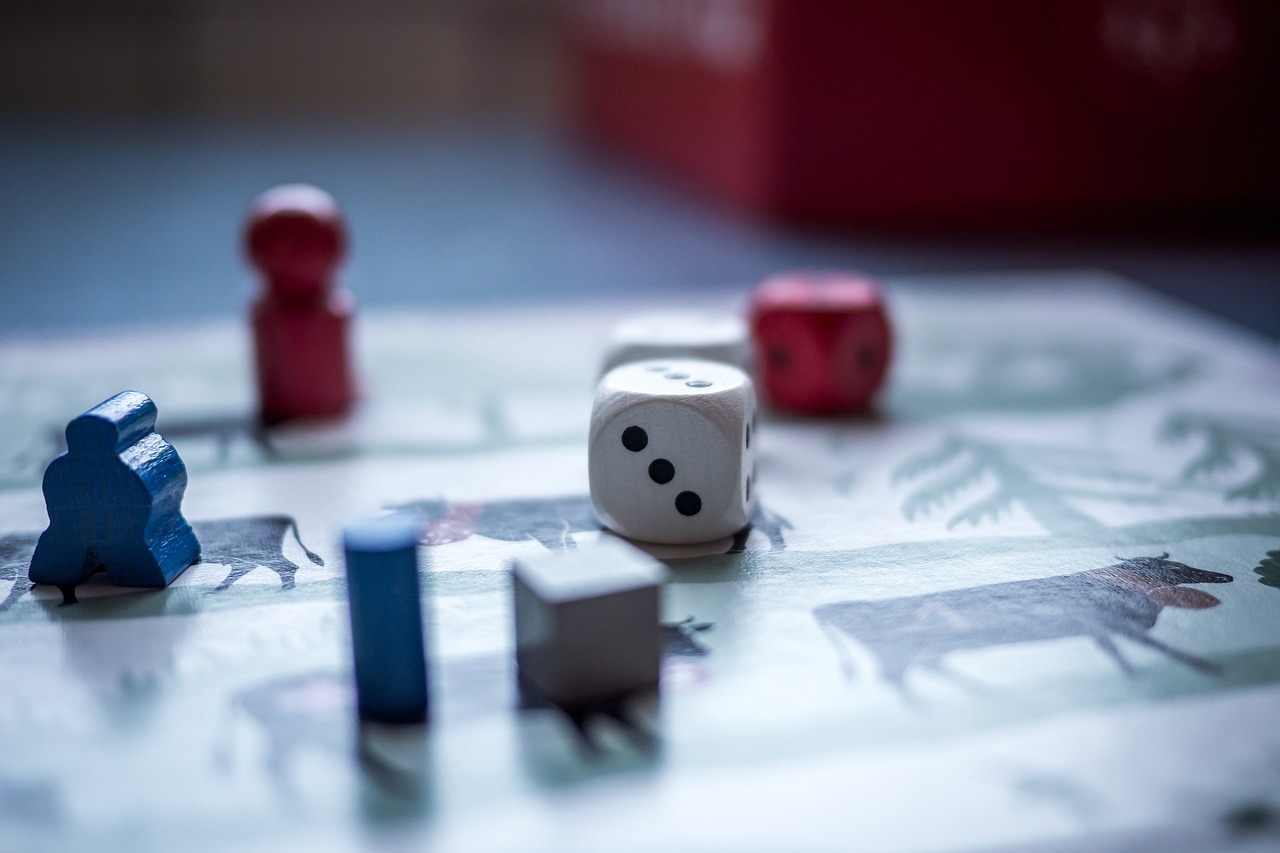
Enhanced Security Measures
When it comes to gaming, security is paramount. Players want to know that their hard-earned progress and investments are protected. This is where blockchain technology steps in, offering a robust solution that enhances security measures in the gaming world. By leveraging the decentralized nature of blockchain, developers can create environments that are far less susceptible to cheating, hacking, and fraud. Imagine a fortress built on trust; that’s what blockchain brings to the table. Each transaction is recorded on a public ledger, making it nearly impossible for malicious actors to alter game data without detection.
One of the standout features of blockchain is its inherent security protocols. These protocols ensure that all player interactions are transparent and verifiable, which significantly reduces the chances of cheating. For instance, every item a player acquires is logged on the blockchain. This means that if someone tries to manipulate their inventory or create fake items, the system will flag these actions immediately. It’s like having a vigilant watchdog that never sleeps, ensuring fair play for everyone involved.
Furthermore, the use of smart contracts in gaming is a game-changer. These self-executing contracts automatically enforce the rules of the game, eliminating the need for third-party oversight. Imagine playing a game where the rules are enforced without any human intervention; that's the power of smart contracts. They not only streamline transactions but also add a layer of security by ensuring that all players adhere to the same rules. This transparency fosters trust among players and developers, creating a more harmonious gaming community.
However, while blockchain offers enhanced security, it’s important to recognize that no system is entirely foolproof. Players must still exercise caution, especially when dealing with third-party platforms that may not adhere to the same security standards. To help mitigate risks, here are some best practices for players:
- Use secure wallets: Always store your in-game assets in reputable wallets that offer robust security features.
- Enable two-factor authentication: This adds an extra layer of security to your accounts, making it harder for unauthorized users to gain access.
- Stay informed: Keep up with the latest news regarding security updates and potential vulnerabilities in the games you play.
In summary, the integration of blockchain technology into gaming not only enhances security measures but also transforms the entire gaming landscape. With features like transparent transactions, smart contracts, and decentralized systems, players can enjoy a more secure and fair gaming experience. As the technology continues to evolve, we can expect even greater innovations that will further bolster security and trust in the gaming community.
Q: How does blockchain improve security in gaming?
A: Blockchain enhances security by providing a decentralized ledger that records all transactions, making it difficult for hackers to alter game data without detection.
Q: What are smart contracts and how do they work in gaming?
A: Smart contracts are self-executing contracts with the terms of the agreement directly written into code. In gaming, they automate transactions and enforce game rules, reducing the need for third-party oversight.
Q: Are there any risks associated with blockchain gaming?
A: While blockchain technology enhances security, players should still be cautious of third-party platforms and ensure they use secure wallets and enable two-factor authentication.
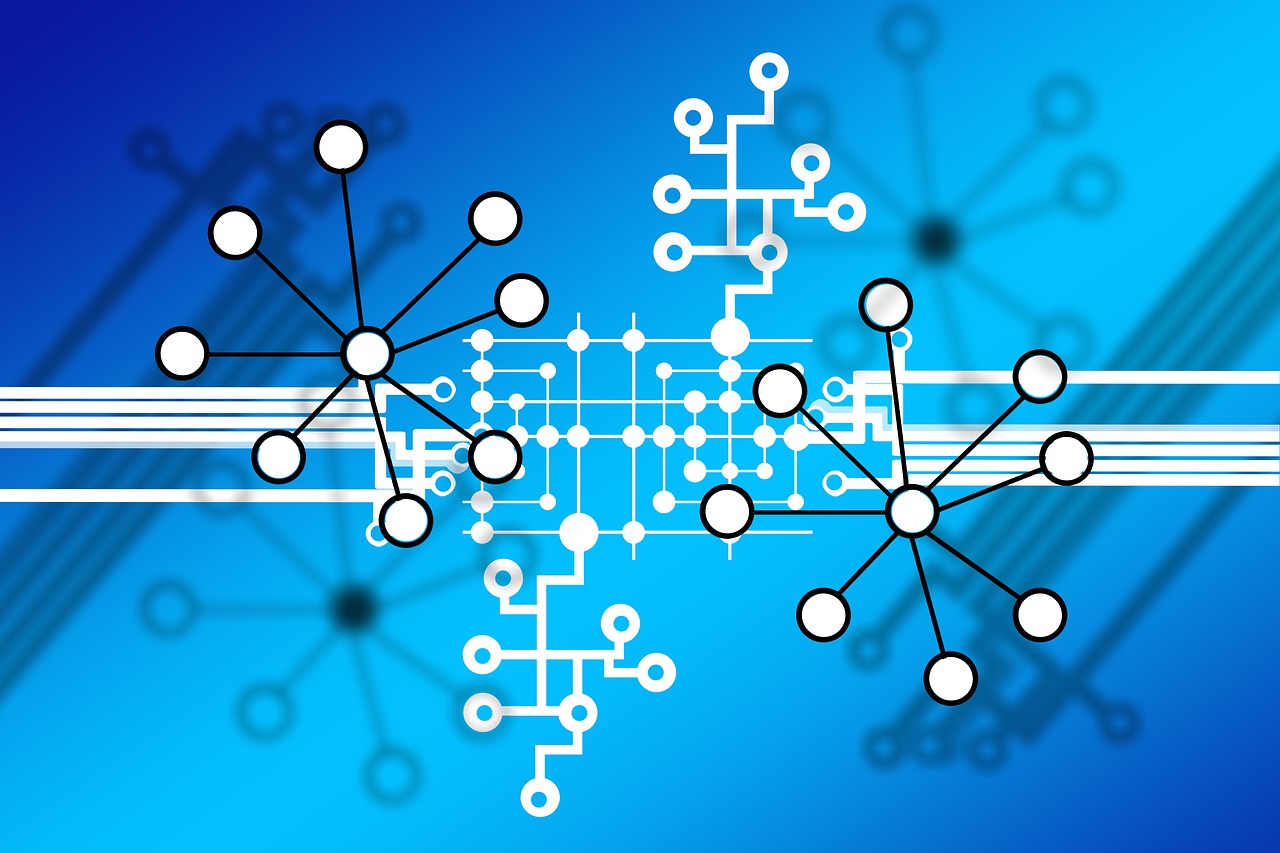
Smart Contracts in Gaming
Smart contracts are truly a game-changer in the world of gaming, acting like digital referees that ensure fair play and transparency. Imagine you're playing your favorite game, and every time you complete a quest, a smart contract automatically rewards you with in-game currency or assets without any human intervention. Sounds pretty cool, right? This automation not only speeds up transactions but also eliminates the risk of human error or bias, making the gaming experience more enjoyable and trustworthy.
At their core, smart contracts are self-executing contracts where the terms of the agreement are written into code. They run on blockchain technology, which means they are decentralized and immutable. This means once a smart contract is deployed, it cannot be altered, ensuring that all players adhere to the same rules. For example, if a player bets a certain amount of in-game currency on a match, the smart contract will automatically distribute the winnings based on the outcome, without needing a middleman to oversee the process.
Here’s how smart contracts can enhance the gaming experience:
- Transparency: All transactions are recorded on the blockchain, allowing players to verify the fairness of the game.
- Efficiency: Automated processes reduce the time it takes to complete transactions, providing instant rewards.
- Security: Since smart contracts are coded and executed on a blockchain, they are less susceptible to hacks and fraud.
Moreover, smart contracts can facilitate complex game mechanics that were previously impossible. For instance, they can manage player-to-player transactions directly, allowing for secure trading of in-game items. This not only enhances player interaction but also creates a vibrant marketplace where players can buy, sell, or trade assets seamlessly. Imagine a world where you can sell your rare sword from one game to another without any hassle—thanks to smart contracts, this is becoming a reality.
However, it's essential to recognize that while smart contracts offer numerous advantages, they also come with challenges. One major concern is the potential for bugs in the code, which can lead to unintended consequences. Just like a poorly written game can lead to glitches, a flawed smart contract can result in lost assets or unfair outcomes. Therefore, developers must prioritize rigorous testing and security audits before deploying smart contracts in their games.
In conclusion, smart contracts are paving the way for a new era in gaming, where transparency, efficiency, and security reign supreme. As developers continue to explore their potential, we can expect to see even more innovative applications that will enhance player experiences and redefine the gaming landscape.
- What are smart contracts? Smart contracts are self-executing contracts with the terms of the agreement directly written into code, running on a blockchain.
- How do smart contracts improve gaming? They enhance transparency, efficiency, and security, automating transactions and ensuring fair play.
- Can smart contracts be hacked? While smart contracts are secure, they can be vulnerable to bugs in the code, so thorough testing is crucial.
- What is the future of smart contracts in gaming? As technology evolves, smart contracts are likely to become more prevalent, facilitating complex game mechanics and player interactions.
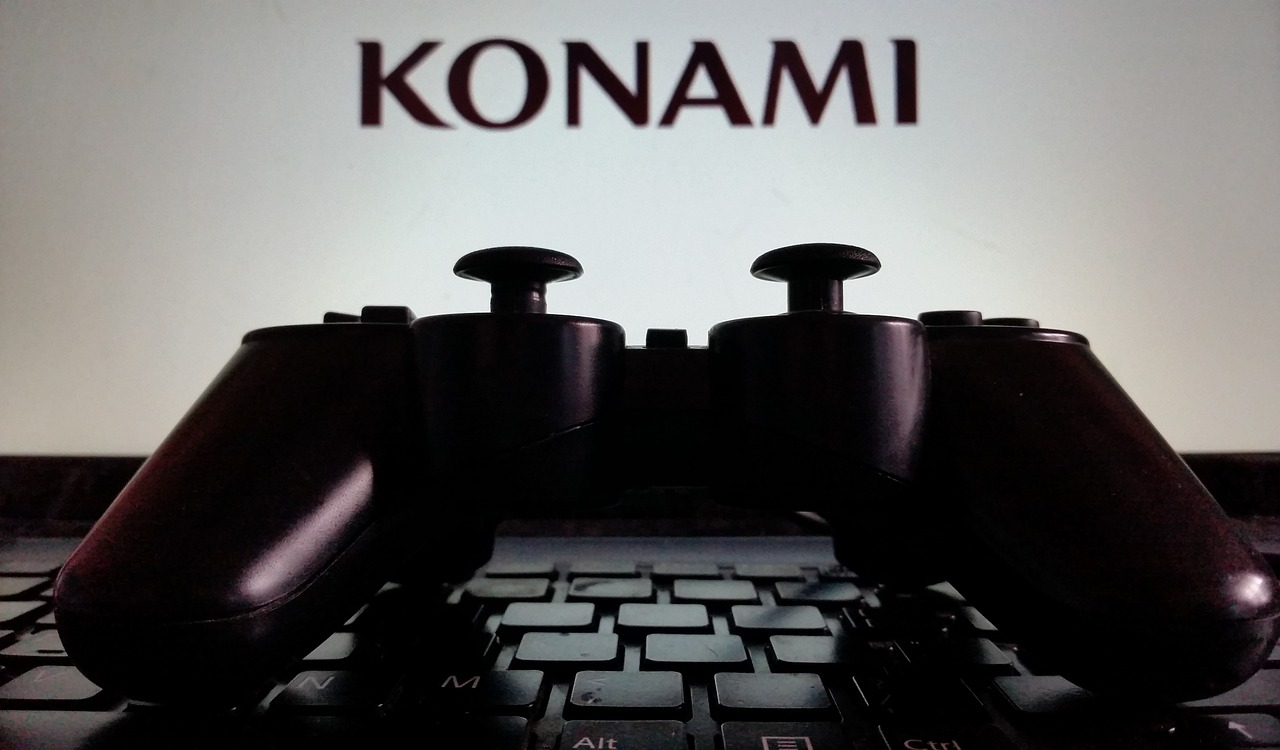
Future Trends in Blockchain Gaming
The gaming landscape is on the brink of a revolution, and blockchain technology is at the forefront of this transformation. As we look ahead, several exciting trends are emerging that will redefine how we play, interact, and earn in the gaming world. One of the most significant trends is the rise of play-to-earn models. Unlike traditional gaming, where players invest time and money with little to no return, play-to-earn allows gamers to earn real-world value through their in-game activities. Imagine spending hours in a game and actually walking away with something tangible—whether it’s cryptocurrency or a unique NFT. This shift not only incentivizes gameplay but also democratizes the gaming economy, making it accessible to a broader audience.
Another trend gaining traction is the incorporation of Decentralized Autonomous Organizations (DAOs) in gaming. DAOs empower players by giving them a voice in the game's development and governance. Players can vote on updates, changes, and even the direction of the game, fostering a sense of community and ownership. This is a far cry from the traditional gaming model, where decisions are often made behind closed doors by a select few. With DAOs, players can truly feel like they are part of the game’s evolution, creating a more engaged and loyal player base.
Moreover, the concept of interoperability is set to expand. Imagine a world where you can take your character or items from one game and use them in another. Blockchain technology is paving the way for this kind of seamless experience, breaking down the barriers between different gaming ecosystems. This interconnectedness not only enhances the user experience but also enriches the gaming universe, allowing for unprecedented creativity and collaboration among developers.
However, as we embrace these trends, it’s essential to address the challenges that come with them. Issues such as scalability, security, and user education need to be prioritized. Developers must ensure that their platforms can handle the influx of users and transactions while maintaining robust security measures to protect against potential threats. Additionally, educating players about blockchain and its benefits will be crucial for widespread adoption.
In conclusion, the future of blockchain gaming is bright and full of possibilities. As these trends continue to evolve, we can expect a more inclusive, engaging, and rewarding gaming experience. The fusion of gaming and blockchain technology is not just a trend; it’s a shift towards a more equitable and innovative industry.
- What is blockchain gaming?
Blockchain gaming refers to games that use blockchain technology to provide players with true ownership of in-game assets, enhance security, and enable decentralized interactions. - How do play-to-earn models work?
In play-to-earn models, players can earn real-world value through their in-game activities, such as completing tasks, winning battles, or trading assets. - What are NFTs in gaming?
Non-fungible tokens (NFTs) are unique digital assets that represent ownership of in-game items or characters, allowing players to buy, sell, and trade them securely. - What are DAOs?
Decentralized Autonomous Organizations (DAOs) are organizations governed by smart contracts on the blockchain, allowing players to participate in decision-making processes regarding the game.
Frequently Asked Questions
- What is blockchain technology in gaming?
Blockchain technology in gaming refers to the use of decentralized networks to create, manage, and secure in-game assets and transactions. It empowers players by ensuring true ownership of digital items, enabling peer-to-peer interactions, and enhancing security within gaming environments.
- How does decentralization benefit gamers?
Decentralization removes the need for intermediaries, allowing gamers to interact directly with one another. This fosters a fairer and more equitable gaming ecosystem where players have greater control over their assets and experiences.
- What are NFTs and how do they impact gaming?
Non-fungible tokens (NFTs) are unique digital assets verified using blockchain technology. In gaming, they allow players to own, buy, sell, and trade in-game items securely, creating a new economy where digital assets hold real value.
- Can I use my in-game assets across different games?
Yes! Blockchain technology facilitates interoperability, which means you can use your in-game assets across various games. This enhances your gaming experience by allowing you to carry your achievements and items from one game to another.
- What role do smart contracts play in gaming?
Smart contracts automate transactions and enforce rules within games, minimizing the need for third-party oversight. They ensure transparency and fairness in player interactions, making the gaming experience smoother and more trustworthy.
- What are the challenges of adopting NFTs in gaming?
While NFTs offer exciting possibilities, their adoption faces challenges like market volatility, which can affect the value of digital assets, and environmental concerns related to the energy consumption of blockchain networks.
- What future trends can we expect in blockchain gaming?
Emerging trends such as play-to-earn models and decentralized autonomous organizations (DAOs) are set to redefine the gaming landscape. These innovations will provide players with new opportunities to earn from their gameplay and participate in game governance.




